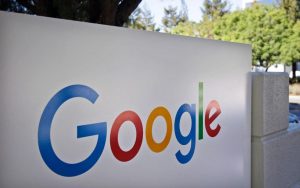 Alphabet’s (NASDAQ:GOOG) Google has agreed to demote piracy sites in its search results in the U.K. The company has agreed to a voluntary code of practice with the British Phonographic Industry (BPI) and Motion Picture Association. Google says that it will reduce “the visibility of infringing content in search results by 1 June 2017.”
Alphabet’s (NASDAQ:GOOG) Google has agreed to demote piracy sites in its search results in the U.K. The company has agreed to a voluntary code of practice with the British Phonographic Industry (BPI) and Motion Picture Association. Google says that it will reduce “the visibility of infringing content in search results by 1 June 2017.”
Google held a series of talks overseen by the U.K.’s copyright watchdog and steered by the department for culture, media, and sport to come up with a plan to limit the reach of piracy sites. The company said in a statement, “”Google has been an active partner for many years in the fight against piracy online. We remain committed to tackling this issue and look forward to further partnership with rights holders.”
There likely won’t be any significant changes to Google’s search algorithms for this specific agreement. Repeat offenders who post pirated material online will see their sites demoted from the first page of Google when users search for content. Legitimate sites will be ranked higher in the search results. Websites that have illegally published copyrighted content on only a few occasions might not be affected by this change.
The move comes after years of wrangling with film and music rights holders, who have been relentless in their efforts to fight piracy. The goal is to make illegal content so difficult to find that casual internet users seek out official alternatives instead. Steve McCoy, president of the Motion Picture Association, commented, “Pirate websites are currently much too easy to find via search, so we appreciate the parties’ willingness to try to improve that situation.”
Search engines play a vital role in helping consumers discover content online. Music, films, and e-books make up a large portion of searches by consumers. Search engine users typically use the results that show up on the first page of results, so many websites work hard to ensure that they appear on that first page. If piracy sites rank higher in the search results than legitimate sites, consumers are unwittingly steered towards those sites.
Search engines have been under similar pressure in the U.S. Google promised in 2012 to downrank sites that received a large number of valid Digital Millennium Copyright Act notices, but the action had a limited effect on piracy. Google tried again in 2014 with a new anti-piracy algorithm, but critics still say that more is needed.
